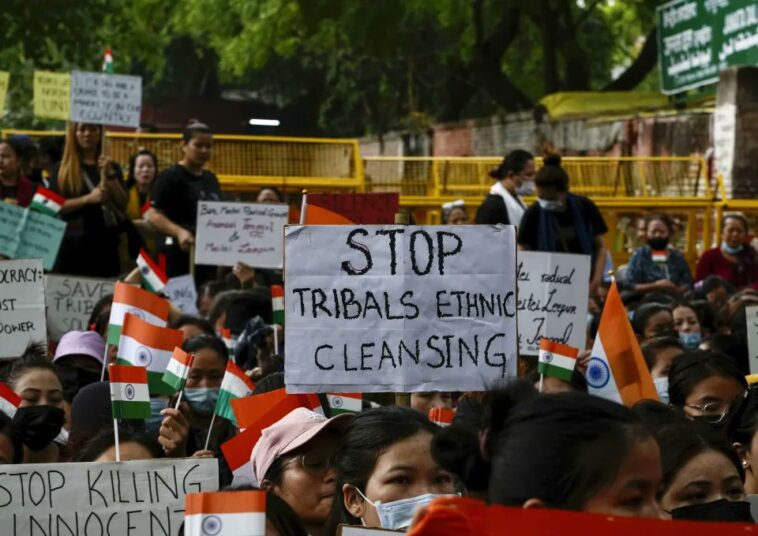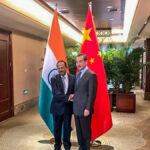The video of three Kuki-Zomi women being sexually abused and displayed naked in the Northeastern state served as the catalyst for the recent three-day gathering of various tribal tribes at Ranchi’s Albert Ekka Chowk to protest against Manipur violence. Hemant Soren, the chief minister of Jharkhand, was compelled by the video, which surfaced last week, to write to President Droupadi Murmu, the country’s first president of Adivasi descent, on Friday, expressing his concern that the government “cannot and must not let the tribal brothers and sisters” be treated in such a “appallingly barbaric way.”
ALSO READ : ‘Eroded strategic trust’: Ajit Doval to Chinese diplomat on LAC standoff
This opinion was voiced during the three-day Ranchi demonstration. Prem Shahi Munda, president of the Adivasi Jan Parishad, said in an interview with The Indian Express that the violence in Manipur, particularly the sexual assault of women, has made mankind ashamed. He questioned the “silence” of Amit Shah, the Union Home Minister, and Prime Minister Narendra Modi. It appears to be a carefully thought-out conspiracy, he claimed.
In order to inform people of the “anti-Adivasi nature and policies” of the BJP government, the Parishad plans to travel to various villages, starting with those in the Tamar and Bundu areas, according to Munda. “What we are witnessing in Manipur is a very hazardous situation. It appears that those in positions of power have come to terms with the fact that there is no rule of law in Manipur. Every caste and group should get together to combat the politics of divisiveness, votes, and silence.
Despite the Parishad’s political agnosticism, Munda stated that he had no objections to “any political party joining the cause.” Leaders of the Jharkhand Mukti Morcha, the Congress, the Rashtriya Janata Dal, and the Communist Party of India have also expressed their displeasure with how the Central government has handled the violence in Manipur over the past few days.
Dayamani Barla, the founder of Adivasi Moolvaasi Astitva Rakhsa Adhikaar Manch, said in an interview with The Indian Express that people could “very clearly” observe what was occurring in Manipur. Barla has spent the last 30 years advocating for tribal rights in Jharkhand.
Manipur raises a number of political, socioeconomic, and human rights issues. Why aren’t the Prime Minister or the Minister of the Interior even attempting to put out the fire? Why hasn’t a committee been established to look into the violence as part of an investigation? The Home Minister would also be aware that FIRs had been filed, so why was nothing done? Why was it kept quiet? Barla enquired.
“As of today, my understanding is that everything in Manipur is about controlling power and resources, and that violence has been tolerated,” she continued. The Centre discusses both protecting tribal groups on the one hand and expanding women’s rights through a uniform civil code on the other. Events that are occurring concurrently in Manipur and other locations stem from a politics of hatred. Where is the respect for women and tribal people?
Convener of the Adivasi Women’s Network Elina Horo, who participated in the demonstration, stated that there may be a great deal more instances of this kind in Manipur. “Politics of majoritarianism for power and money have taken precedence over efforts to curtail crime. The patriarchal worldview that causes people to view women as a commodity is also reflected in the sexual assault against women, according to her.
When asked why there is so little political discussion of sexual violence against women in Jharkhand, Horo responded, “This is a major point, and patriarchal thinking is one of the primary reasons. Jharkhand too exhibits conduct akin to khap panchayats. As a society, we can take immediate action to stop the crime, but we also need to plan for the long term by investing in education and working with groups like religious organisations to address the problem.





